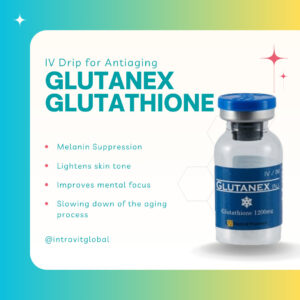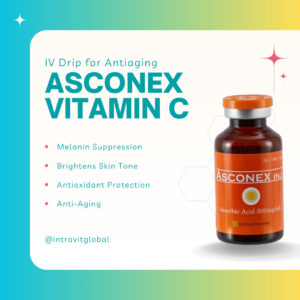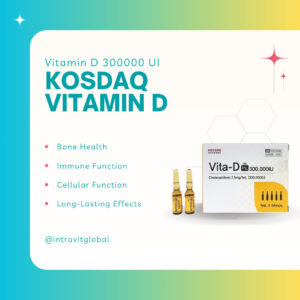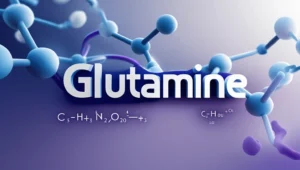15 Tips for Better Nutrition and Hydration
Table of Contents

Understanding the Importance of Nutrition and Hydration
Why Nutrition and Hydration Are Crucial for Health
Nutrition and hydration are the foundation of a healthy lifestyle. Imagine your body as a car—nutrients are the fuel, and water is the oil that keeps everything running smoothly. Without proper nutrition and hydration, your body struggles to perform basic functions like energy production, waste elimination, and even temperature regulation.
Proper nutrition ensures your body gets essential vitamins, minerals, and macronutrients, while hydration helps your cells function optimally. Dehydration and poor nutrition can lead to fatigue, weakened immunity, and long-term health complications like heart disease or kidney issues.
Making small, intentional changes to your daily habits can yield massive benefits, from improved focus and energy to stronger bones and a more resilient immune system.
The Role of Nutrition in Supporting Vital Functions
What you eat directly impacts every system in your body. Proteins repair tissues, carbs give you energy, and fats are essential for hormone regulation. At the same time, vitamins and minerals act as the building blocks for numerous biochemical reactions.
For instance, calcium and vitamin D are essential for strong bones, while iron and vitamin B12 prevent anemia. When your diet lacks these nutrients, your body will let you know through signs like brittle hair, fatigue, or frequent illnesses.
Prioritizing nutrient-rich foods like leafy greens, lean proteins, and healthy fats is a game-changer. With every meal, think of your plate as an opportunity to fuel your body for success.
The Benefits of Proper Hydration for Your Body
Water is life—literally. Every cell, tissue, and organ in your body depends on water to function. Staying hydrated regulates your body temperature, supports digestion, and helps transport nutrients. Even mild dehydration can cause brain fog, headaches, and reduced physical performance.
Athletes, in particular, need to pay close attention to hydration, as they lose fluids through sweat. But hydration isn’t just about guzzling water; electrolytes like sodium, potassium, and magnesium play a critical role in maintaining balance.
Start your day with a glass of water and keep a bottle nearby throughout the day. Over time, these small habits add up, ensuring your body stays hydrated and ready to tackle any challenge.
Building a Balanced Diet
The Essentials of a Balanced Diet
A balanced diet isn’t about restrictive eating; it’s about creating harmony on your plate. A simple formula is to include lean proteins, healthy fats, complex carbs, and plenty of fruits and veggies in every meal.
Think of it as a colorful puzzle—each food group plays a vital role. For example, proteins like chicken or tofu support muscle growth, while fats from avocados and nuts provide lasting energy. Carbs, especially whole grains, are your brain’s preferred source of fuel, and fruits and vegetables pack an antioxidant punch.
A well-balanced diet not only supports physical health but also enhances mood and cognitive function. Start small by replacing processed foods with whole foods, and you’ll feel the difference in no time.
Incorporating More Whole Foods
Whole foods are nature’s gift to us, packed with nutrients that processed foods lack. These are foods that are as close to their natural state as possible, like fresh fruits, vegetables, whole grains, nuts, and seeds.
Unlike processed snacks filled with added sugars and preservatives, whole foods nourish your body without the extra baggage. Swapping sugary cereals for oatmeal or chips for a handful of almonds can make a world of difference.
Shopping the perimeter of the grocery store is a great way to focus on whole foods, as that’s where fresh produce, meats, and dairy are typically found. Challenge yourself to add at least one new whole food to your meals every week.
Staying Hydrated Throughout the Day
How Much Water Do You Really Need?
The classic advice is to drink 8 glasses of water daily, but hydration needs vary based on age, activity level, climate, and health conditions. A more accurate guideline is to drink at least half your body weight in ounces of water. For example, if you weigh 160 pounds, aim for 80 ounces of water daily.
However, water isn’t the only source of hydration. Foods like cucumbers, watermelon, and oranges contribute significantly to your fluid intake. Signs you might need more water include dry lips, dark urine, fatigue, or dizziness.
If plain water feels boring, consider adding a slice of lemon, mint leaves, or berries for flavor. The key is to make hydration a consistent habit that fits seamlessly into your day.
Tips to Make Hydration a Habit
Making hydration a habit doesn’t have to be complicated. Start small and gradually incorporate these strategies into your routine:
- Carry a reusable water bottle: Keeping it within reach reminds you to sip throughout the day.
- Set reminders: Use alarms or hydration apps to nudge you to drink water.
- Drink a glass of water with every meal: This naturally adds 3-4 glasses daily.
- Hydrate before workouts: Pre- and post-exercise hydration is essential for performance and recovery.
These steps are simple but effective. Over time, staying hydrated will become second nature, helping you feel more energetic and focused.
Hydrating Beyond Water: Healthy Alternatives
While water is king, there are plenty of other hydrating beverages and foods to keep you refreshed. Unsweetened herbal teas, coconut water, and infused water are excellent choices that add flavor without added sugar.
Electrolyte-rich drinks, especially after intense workouts, help replenish what you lose through sweat. However, avoid sugary sports drinks unless necessary, as they can counteract your efforts with empty calories.
Fruits and vegetables are also hydration heroes. For instance, cucumbers are 96% water, and watermelon isn’t far behind at 92%. Including these in your meals and snacks adds variety to your hydration strategy.
Practical Nutrition and Hydration Tips
Meal Prepping for Success
Meal prepping is a game-changer when it comes to better nutrition and hydration. Planning and preparing meals in advance saves time and ensures you always have healthy options on hand.
Begin by setting aside time once or twice a week to prep meals. Focus on simple, balanced recipes like grilled chicken with roasted veggies and quinoa. Divide them into portioned containers for easy grab-and-go meals.
Meal prep isn’t just about meals; snacks count, too! Pre-cut fruits, boil eggs, or portion out nuts to curb hunger between meals. And don’t forget hydration—prepare infused waters or homemade iced teas in advance to keep your drinks exciting and accessible.
Snacking Smart for Sustained Energy
Snacking often gets a bad rap, but it’s an essential part of maintaining energy throughout the day. The trick is to choose nutrient-dense snacks that provide lasting energy rather than sugar-laden options that cause crashes.
Great snack ideas include:
- A handful of mixed nuts
- Greek yogurt with fresh berries
- Hummus with carrot sticks
- Apple slices with almond butter
Pairing proteins with carbs or fats is the ideal combination to keep you satiated. For example, a small piece of dark chocolate with a few almonds can satisfy your sweet tooth while providing healthy fats and antioxidants.
Timing Your Meals and Hydration
When you eat and drink is just as important as what you consume. Eating at consistent times helps regulate your metabolism and prevents overeating. Aim for three balanced meals and two smaller snacks spaced evenly throughout the day.
Hydration timing is also crucial. Begin your morning with a glass of water to kickstart your metabolism and flush out toxins. Sip water throughout the day rather than chugging it all at once to maintain hydration levels.
If you work out, ensure you drink water 30 minutes before and after exercise. And remember, caffeine and alcohol can dehydrate you, so balance these with extra water.
Boosting Nutrition and Hydration During Special Circumstances
Staying Nourished During Workouts
Exercise places extra demands on your body, making nutrition and hydration even more critical. Before working out, fuel your body with a small meal or snack rich in carbs and moderate in protein. Think a banana with peanut butter or a slice of whole-grain toast.
During intense or prolonged workouts, sip water every 15–20 minutes. For sessions lasting over an hour, consider an electrolyte drink to maintain balance. Post-workout recovery is equally important—consume a protein-rich snack or meal within 30 minutes to help repair muscles and restore glycogen levels.
Hydration and Nutrition Tips for Travelers
Traveling can disrupt your usual eating and drinking habits, but planning ahead can keep you on track. Pack healthy snacks like trail mix, granola bars, or dried fruit to avoid relying on fast food.
Carry a reusable water bottle to refill at airports or rest stops, and opt for herbal teas or sparkling water instead of sugary drinks. Staying hydrated is especially important on long flights, where dry cabin air can dehydrate you.
Choose balanced meals when dining out by focusing on lean proteins and vegetables. A little preparation goes a long way in maintaining your health while on the go.
Nutrition and Hydration for Seasonal Changes
Your body’s needs shift with the seasons, making it important to adjust your nutrition and hydration strategies. In summer, prioritize water-rich foods like melons and cucumbers and increase your fluid intake to combat heat.
Winter often brings heavier, comforting meals, but don’t forget to include fresh produce for essential vitamins. Warm beverages like herbal teas or broths can keep you hydrated and cozy.
By tuning in to your body and adapting to seasonal changes, you can stay nourished and hydrated year-round.
Conclusion and FAQs
Wrapping Up Your Nutrition and Hydration Journey
Improving your nutrition and hydration doesn’t require a drastic overhaul of your lifestyle. Instead, small, consistent changes can make a significant difference. Start by incorporating more whole foods into your diet, drinking water throughout the day, and creating habits that support balanced meals and snacks.
Remember, it’s all about finding what works best for your body and lifestyle. Pay attention to how your body responds to changes, and adjust as needed. Whether you’re hydrating with a fruit-infused drink or meal prepping for the week, every step you take brings you closer to better health.
By following these 15 tips, you’re not just improving your energy and focus; you’re investing in a healthier, happier you.
FAQs
1. How can I tell if I’m dehydrated?
Common signs of dehydration include dry mouth, dark yellow urine, fatigue, dizziness, and headaches. If you notice these symptoms, it’s time to increase your fluid intake immediately. Monitoring your urine color is one of the easiest ways to track hydration levels—aim for a pale, straw-like color.
2. What’s the best way to start eating healthier?
Start small! Focus on adding more whole foods like fruits, vegetables, and lean proteins to your meals. Gradually cut back on processed foods and sugary snacks. Meal prepping and planning ahead can also help you make healthier choices without feeling overwhelmed.
3. Can I drink too much water?
Yes, overhydration (or water intoxication) can occur, although it’s rare. Drinking excessive amounts of water in a short period can dilute electrolytes in your body, leading to a dangerous condition called hyponatremia. Listen to your thirst cues and aim for balanced hydration.
4. What are quick healthy snacks for busy days?
Some easy and nutritious snacks include:
- A handful of almonds or walnuts
- Fresh fruit like apples or bananas
- Greek yogurt with honey and chia seeds
- Veggie sticks with hummus
- Rice cakes topped with avocado and a sprinkle of salt
These options are portable, satisfying, and packed with nutrients to keep you going.
5. Is it better to eat three big meals or smaller meals throughout the day?
This depends on your personal preferences and lifestyle. Some people thrive on three balanced meals, while others feel more energized with smaller, frequent meals. The key is to listen to your body and ensure you’re getting the nutrients you need throughout the day.
-
Vitamin Drips
Glutanex Glutathione 1200mg IV Drip for Antiaging, Melanin Suppression, Antioxidant Skin Brightness Benefits
£20.00 – £120.00 Select options This product has multiple variants. The options may be chosen on the product pageRated 0 out of 5 -
Vitamin Drips
Asconex Vitamin C (Ascorbic Acid) IV Drip for Antiaging, Melanin Suppression, Antioxidant and Skin Brightness Benefits
£10.00 – £70.00 Select options This product has multiple variants. The options may be chosen on the product pageRated 0 out of 5 -
Vitamin Drips
Kosdaq Vitamin D 300000 IU Cholecalciferol per vial box of 10 ampoules
£20.00 – £140.00 Select options This product has multiple variants. The options may be chosen on the product pageRated 0 out of 5
Checkout our Facebook Page and leave your review about our Health Care Products.






